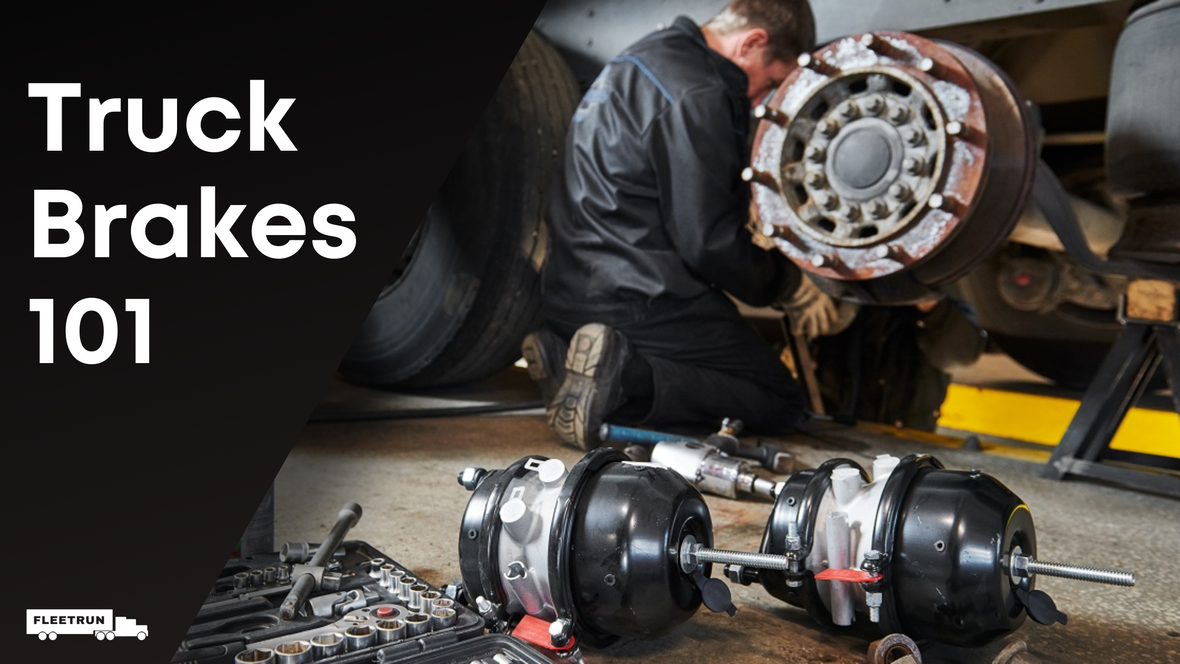
How To Maintain Your Truck's Brakes in Great Condition
It sucks when one of your truck’s parts decides it’s time to retire. If it’s your engine, you better start by saying a prayer for your wallet, or if it’s summer and your AC starts acting up, you should look into fixing it as soon as possible, unless you want to feel what the sun is capable of. These are slightly inconvenient situations, but imagine driving at 80 mph and your brakes stop working. Now that’s a life and death situation, so maintaining your brakes in good condition is vital for your safety. Here are five practical tips to help you maintain your truck's brakes for safe drives.
Make sure you pay attention to the brake shoes and linings. Worn brake shoes can lead to reduced braking power and increased stopping distances, which are dangerous, especially for heavy trucks. If you notice any grinding noises, vibrations, or reduced braking performance, it might be time to replace the brake shoes.
Regularly check the air lines and air dryers to ensure they are free of moisture and debris. Moisture in the air system can freeze in cold weather, leading to brake failure. If you notice any issues with air pressure or moisture, address them immediately by repairing or replacing faulty components.
Also, don’t go with the cheapest options available in the market. They are often low-quality and won’t last you for very long. You should always aim to buy parts that have the best price-quality ratio. A few good examples are Haldex 4707Q, Meritor EX+LS, SAF P89, Bendix ADB22X, Meritor Q+, and Power Stop Z36.
Also, make sure you maintain a safe following distance to reduce the need for sudden stops and try to anticipate traffic conditions ahead of time. This allows you to brake gradually and reduces the stress on your brake components.
1. Perform Routine Inspections
This should be standard practice, no matter what. Make it a habit to check your brake system at least once a month. Look for signs of wear and tear on brake drums, chambers, air compressors, and slack adjusters. Corrosion and rust can significantly reduce braking efficiency, so it's essential to catch these issues early.Make sure you pay attention to the brake shoes and linings. Worn brake shoes can lead to reduced braking power and increased stopping distances, which are dangerous, especially for heavy trucks. If you notice any grinding noises, vibrations, or reduced braking performance, it might be time to replace the brake shoes.
2. Adjust Your Brakes Regularly
Proper brake adjustment is crucial for maintaining braking efficiency. As brake shoes wear down, slack adjusters need to be adjusted to compensate for this wear. Manual slack adjusters should be checked and adjusted regularly, while automatic slack adjusters also require periodic inspections to ensure they are functioning correctly. Failing to adjust the brakes will result in uneven brake wear.
3. Maintain the Air System
If your truck has air brakes, maintaining the air system is highly important. The air compressor should maintain a pressure of 120-130 PSI for optimal brake function. Low air pressure can result in insufficient braking power, which is particularly dangerous when hauling heavy loads.Regularly check the air lines and air dryers to ensure they are free of moisture and debris. Moisture in the air system can freeze in cold weather, leading to brake failure. If you notice any issues with air pressure or moisture, address them immediately by repairing or replacing faulty components.
4. Replace Worn Components Promptly
We often tend to keep parts until they are completely broken, and this can lead to very dangerous situations, especially when we’re talking about brakes. Brake shoes, return springs and other components should be replaced as soon as you notice advanced levels of damage.Also, don’t go with the cheapest options available in the market. They are often low-quality and won’t last you for very long. You should always aim to buy parts that have the best price-quality ratio. A few good examples are Haldex 4707Q, Meritor EX+LS, SAF P89, Bendix ADB22X, Meritor Q+, and Power Stop Z36.
5. Practice Proper Driving Habits
Your driving habits have a significant impact on the lifespan of your truck's brakes. Aggressive driving, such as frequent hard braking and high-speed stops, will cause excessive wear and tear on your brake system. To prevent this, practice braking smoothly and gradually,Also, make sure you maintain a safe following distance to reduce the need for sudden stops and try to anticipate traffic conditions ahead of time. This allows you to brake gradually and reduces the stress on your brake components.





























